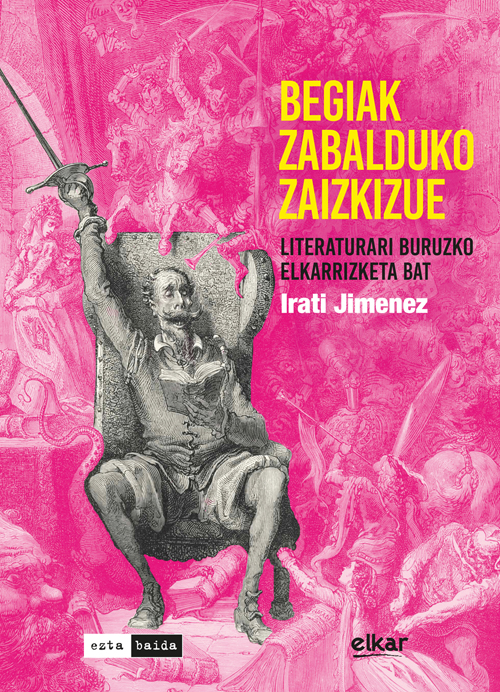

Irati Jimenez published this work at the last fair in Durango, and so that his monologue is not our bit of sand.
On the one hand, it makes a diagnosis of the Basque literary system: it says that our literature is sick and cold. Give some examples to illustrate this and put the advice on the road to recovery. On the other hand, she says she wants to talk about literature and that for her it means what good and bad literature is, while sharing self-help guides for readers, writers, editors and critics, from her knowledge and experience.
As he asks those of us who make literary criticism in the book, I am now going to say what I liked the most and least. I've really enjoyed how enthusiastic, engaged and empowered literature is. In addition, I have enjoyed the literature, that is, the text and the literary exercise, as he says, by reading how he is doing it. What I did not like so much was to use androcentric and canonical references. Despite the exceptions, and despite the explicit impulse of feminism, he has occasionally identified the writer and man and I have missed many feminist referents.
Next, I would like to highlight three common ideas or themes: the need to penetrate, read everything, approach from the body.
One: Zafra, Haraway and Garces have made it clear recently: we are fragile and we are in a precarious situation; we need to live together, to feed the community is fundamental. Jimenez defends the need to start promoting cooperativism, good treatment and friendship in the Basque literary system.
Two: different literary genres, good books and bad books in different languages, and we have to read classics and contemporaries, not just fashion news. He repeats that we have to know the tradition and shows us that if we do it we will find precious stones (Axular, Xaho, Aresti...).
Three: it says that we have to dirty and impregnate the Basque literature with flesh and emotion. The humor, the pain, the curiosity, that they get angry at writing and that reading links us to the text. It wants us to overcome the supremacy of reason, realism and vision and to create it freely and imagine it.